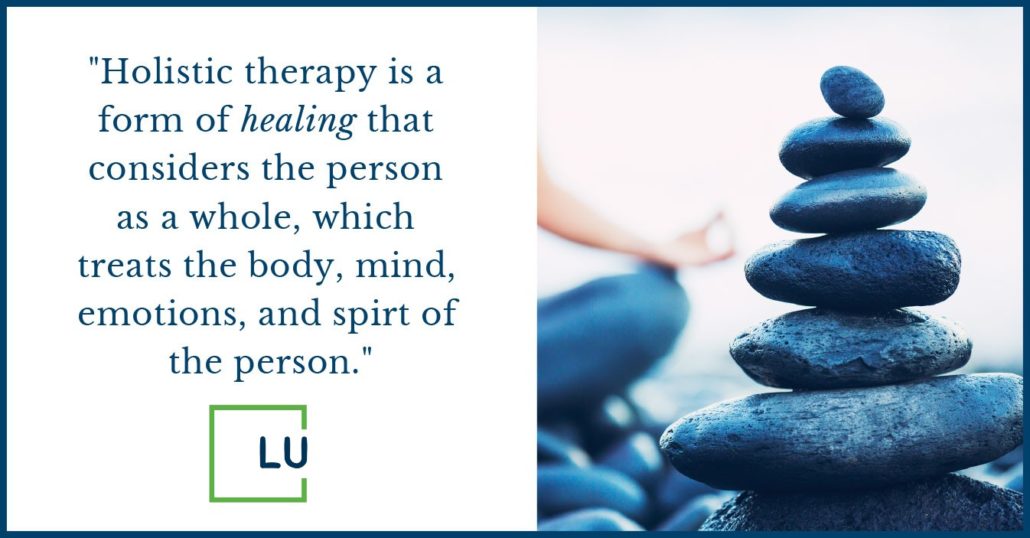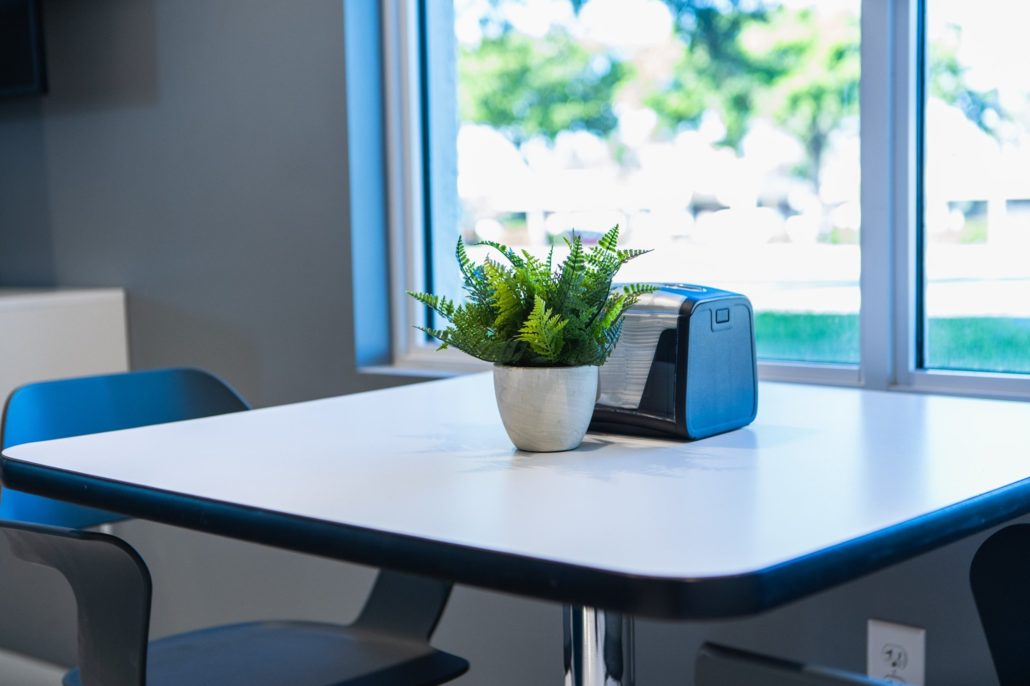Types of Behavioral Counseling in Drug Abuse Treatment Centers
A drug abuse treatment center actively uses several different behavioral therapies within their addiction treatment therapies and program to help and encourage clients to identify and change self-destructive behaviors related to their drug abuse. In addition, a drug abuse treatment center uses several evidence-based behavior programs and therapies in all aspects of addiction treatment. These may include:
Cognitive Behavioral Therapy (CBT)
CBT is originally designed for the treatment of depression. It is effective in treating multiple types of substance use disorders in a drug abuse treatment center setting. According to the National Institute on Drug Abuse (NIDA) [1], research has shown that the effects of CBT continue after therapy sessions are complete. NIDA considers CBT an evidence-based approach for treating a range of substance use disorders.
A fundamental element of CBT is anticipating likely problems and enhancing clients’ self-control by helping them develop effective coping strategies. Specific methods include exploring the positive and negative consequences of continued alcohol or drug use, self-monitoring to recognize cravings early, and identify situations that might put the person at risk for use. But, most importantly, CBT helps develop strategies for coping with cravings and avoiding those high-risk situations.


Get Your Life Back
Find Hope & Recovery. Get Safe Comfortable Detox, Addiction Rehab & Mental Health Dual Diagnosis High-Quality Care at the We Level Up Treatment Centers Network.
Hotline (877) 378-4154How CBT Differs From Other Psychotherapies
- Cognitive-behavioral therapy (CBT) allows a hands-on alternative to less engaging therapy techniques.
- Recovering users do more than talk to their counselors or therapists during a CBT session, and counselors do more than passively listen. Instead, users and therapists work together to treat and heal addiction.
- CBT is established on action-focused, fast treatment. Most 60 to 90-day rehab programs include CBT to provide people with immediate coping techniques.
- Some psychotherapy techniques might take years to have a strong impact. CBT often requires 16 sessions to produce meaningful results.
- CBT is adaptable, making it effective in inpatient settings, as well as group and individual counseling environments. Many counselors and addiction treatment centers include CBT as a vital part of their recovery programs.
- Evidence from numerous large scale trials and quantitative reviews supports the effectiveness of CBT for alcohol and drug use disorders in a drug abuse treatment center settings [2].
Goals of CBT
- Identifying the circumstances or issues which are connected to addiction.
- Developing an awareness of negative feelings, thoughts, and behaviors which contribute to the addiction.
- identifying false beliefs or negative ways of thinking that make addictive behaviors worse.
- Evaluating why these thoughts happen and how they can be reshaped or eliminated in a positive way.
Contingency Management (CM)
Contingency management uses positive reinforcement to change attitudes and behaviors. It is established on the principle that if positive behavior is rewarded, it is more likely to be repeated in the future. Examples of rewards for positive behaviors in drug abuse treatment centers may include extra recreational activities or day passes with family members.
When clients test negative for drugs, they receive a reward such as vouchers, gift certificates, clinic privileges, or other gifts. Research suggests that contingency management interventions may be effective in increasing treatment retention and abstinence from substances like drugs and alcohol. Moreover, NIDA considers contingency management interventions an evidence-based approach for treating a range of addictions.
According to the study published by the National Center for Biotechnology Information (NIDA) [3], a large number of clinical trials have supported the efficacy of contingency management (CM) for various substances such as alcohol, cocaine, and opioids in a drug abuse treatment center settings.
Get Help. Get Better. Get Your Life Back.
Searching for Accredited Drug & Alcohol Rehab Centers Near You? Or Mental Health Support?
Even if you have failed previously, relapsed, or are in a difficult crisis, we stand ready to support you. Our trusted behavioral health specialists will not give up on you. Call us when you feel ready or want someone to speak to about therapy alternatives to change your life. Even if we cannot assist you, we will lead you wherever you can get support. There is no obligation. Call our hotline today.
FREE Addiction Hotline – Call 24/7Dialectical Behavior Therapy (DBT)
According to the National Center for Biotechnology Information (NCBI) [4], dialectical behavior therapy (DBT) is a well-established treatment for people with multiple and severe psychosocial disorders, including those who are chronically suicidal. Because many such individuals are also struggling with alcohol or drugs, the authors developed DBT for substance abusers, which combines concepts and modalities designed to promote abstinence and reduce the length and adverse effects of relapses.
DBT is used to treat several mental illnesses in addition to substance abuse and addiction. Drug abuse treatment centers are increasingly using DBT in their treatment programs. Some of the focus principles of DBT, such as improving coping skills, communication skills, and self-image, are crucial in helping those suffering from addiction move away from drug use.
Common DBT Strategies
- Helping the person seek out environments and peer groups that discourage drug use
- Encouraging the person to remove triggers such as unhealthy relationships or drug paraphernalia from their daily lives
- Reinforcing self-esteem and confidence to help the person stay sober through stressful periods
12-Step Facilitation Therapy
This type of therapy encourages active engagement in a 12-step recovery group. It is a brief, structured program that has behavioral, spiritual, and cognitive components that is is based on the principles of 12 step peer support programs like Alcoholics Anonymous (AA) and Narcotics Anonymous (NA). Its primary purpose is to promote long-term sobriety with peer engagement. The three main ideas of this approach are acceptance, surrender, and active involvement. The twelve-step facilitation therapy can be conducted either in a group or individual sessions. Thus, it is widely considered as an evidence-based approach for the treatment of addiction in a drug abuse treatment center set-up.
Family Behavior Therapy (FBT)
FBT is effective in treating substance abuse in addition to co-occurring conditions, such as depression and family conflict. In a drug abuse treatment center, clients work together with a substance abuse counselor and their family members to reduce the harm of substance abuse and addiction on the family unit and to improve the home environment in a way that promotes abstinence.
First-class Facilities & Amenities
World-class High-Quality Addiction & Mental Health Rehabilitation Treatment
Rehab Centers TourRenowned Addiction Centers. Serene Private Facilities. Inpatient rehab programs vary.
Addiction Helpline (877) 378-4154Proven recovery success experience, backed by a Team w/ History of:
15+
Years of Unified Experience
100s
5-Star Reviews Across Our Centers
10K
Recovery Success Stories Across Our Network
- Low Patient to Therapist Ratio
- Onsite Medical Detox Center
- Comprehensive Dual-Diagnosis Treatment
- Complimentary Family & Alumni Programs
- Coaching, Recovery & Personal Development Events
Holistic Treatment & Alternative Therapies
This is an approach to substance abuse addiction treatment that has been growing in popularity and support that is usually administered in a drug abuse treatment center. Holistic therapies, regardless of what they are treating, address all parts of the person’s wellbeing. The idea behind it is that our overall wellbeing is controlled by our physical, mental, and spiritual states of being. If we want to treat a disorder, we must address its manifestations in all three of these areas. In order to do this, drug abuse treatment centers do not forego western medicine and psychiatric treatment, but they add additional alternative treatments. The following alternative treatment methods help individuals heal their mind, body, and spirit.

The following alternative treatment methods help individuals heal their mind, body, and spirit.
- Yoga
- Massage
- Chiropractic Therapy
- Music Therapy
The Substance Abuse and Mental Health Service Administration (SAMHSA) [5] envisions wellness not as the absence of illness, disease, and stress, but as the presence of a positive purpose in life, satisfying work and play, joyful relationships, a healthy body and living environment, and happiness.
World-class, Accredited, 5-Star Reviewed, Effective Addiction & Mental Health Programs. Complete Behavioral Health Inpatient Rehab, Detox plus Co-occuring Disorders Therapy.
CALL (877) 378-4154End the Addiction Pain. End the Emotional Rollercoaster. Get Your Life Back. Start Drug, Alcohol & Dual Diagnosis Mental Health Treatment Now. Get Free No-obligation Guidance by Substance Abuse Specialists Who Understand Addiction & Mental Health Recovery & Know How to Help.
Benefits of Behavioral Therapy in Drug Abuse Treatment Centers
- Improves life skills
- Provides incentives for maintaining abstinence
- Helps clients explore their feelings, thoughts, habits, and experiences to gain a better understanding of themselves and their addiction
- Modifies negative behaviors and attitudes
- Gives clients someone who will listen to their problems without judgment and productively discuss them.
- Enhances ability to handle stressful situations and triggers
- Helps clients establish a trusting and supportive relationship with someone who is fully invested in helping them reach their recovery goals [6].
Find the Right Treatment Plan at We Level Up NJ

Behavioral counseling, CBT in particular, has been shown to greatly benefit those in recovery from substance abuse, addiction, as well as those with various mental health issues. It works best when it is tailored to the individual and part of a complete treatment program. At We level Up NJ, is a drug abuse treatment center that will guide you from beginning through the end of your treatment plan. We believe that each member of our facility deserves a personalized approach, with their needs being put first. If you have any concerns, questions, or comments, please don’t hesitate to reach out to us. We’re waiting for your call!
Experience Transformative Recovery at the We Level Up Treatment Center.
See our authentic success stories. Get inspired. Get the help you deserve.



Start a New Life
Begin with a free call to an addiction & behavioral health treatment advisor. Learn more about our dual-diagnosis programs. The We Level Up treatment center network delivers various recovery programs at each treatment facility. Call to learn more.
- Personalized Care
- Caring Accountable Staff
- World-class Amenities
- Licensed & Accredited
- Renowned w/ 5-Star Reviews
We’ll Call You
Sources
[1] NIDA – https://www.drugabuse.gov/publications/principles-drug-addiction-treatment-research-based-guide-third-edition/evidence-based-approaches-to-drug-addiction-treatment/behavioral-therapies/cognitive-behavioral-therapy
[2][3] NCBI – https://www.ncbi.nlm.nih.gov/pmc/articles/PMC2897895/
[4] NCBI – https://www.ncbi.nlm.nih.gov/pmc/articles/PMC2797106/
[5] SAMHSA – https://mfpcc.samhsa.gov/ENewsArticles/Article12b_2017.aspx